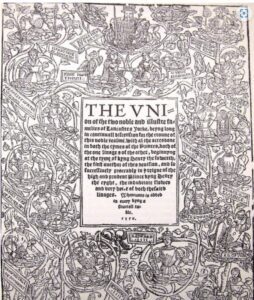Henry VIII Last Rites
Historical Account of Henry VIII's Death
he primary source for the claim that Henry VIII received last rites from a Catholic priest, Edward Wotton, Dean of Canterbury, comes from the chronicle of Edward Hall (1548). This detailed account of English history from the reign of Henry IV to that of Henry VIII mentions that “Upon All-halowne day (1 November 1546), the king fell sick of a double tertian [malaria], whereof he lay ten days… and on Saint Andrew’s Eve [29 November] departed this life [died]… his confessor… the Dean of Canterbury [Edward Wotton]… ministered to him the holy sacrament.”
It was written shortly after Henry’s death and could be influenced by political and religious biases of the time. Other contemporary accounts provide less specific details about Henry’s final days and don’t explicitly mention his confessor:
- Letters of John Leland (1546-1547): These letters written by a close friend of Henry VIII mention that the king received “extreme unction” (a term for the Catholic sacrament of anointing the sick) but don’t identify the priest who administered it.
- Accounts of Spanish and Venetian ambassadors: They report that a priest was summoned to Henry’s bedside, but again, don’t provide specific details about his identity or affiliation.
While the evidence suggests that Henry VIII likely received last rites from a Catholic priest, Edward Wotton, it’s not definitively confirmed beyond a reasonable doubt. The lack of clear and consistent documentation across multiple sources leaves room for some historical ambiguity.
Hall's Chronicles
Edward Hall was born about 1496 in London and was educated at Eton and at King’s College Cambridge He entered Grays Inn and became a lawyer taking up the position of Common Sergeant of the City of London and judge of the Sheriff’s Court. He became a chronicler during this period when he makes astute observations of life in the City of London and Westminster.
It is possible Edward Hall was a Member of Parliament when he wrote about the subsidy bill as it passed through the House of Commons such is his insightful writing. He was eventually a member of parliament for Bridgnorth. Hall’s great work, The Union of the Noble and Illustre Famelies of Lancastre and York, commonly called Hall’s Chronicle, was first published in 1542. Further editions followed right up until the beginning of the 20th century.

